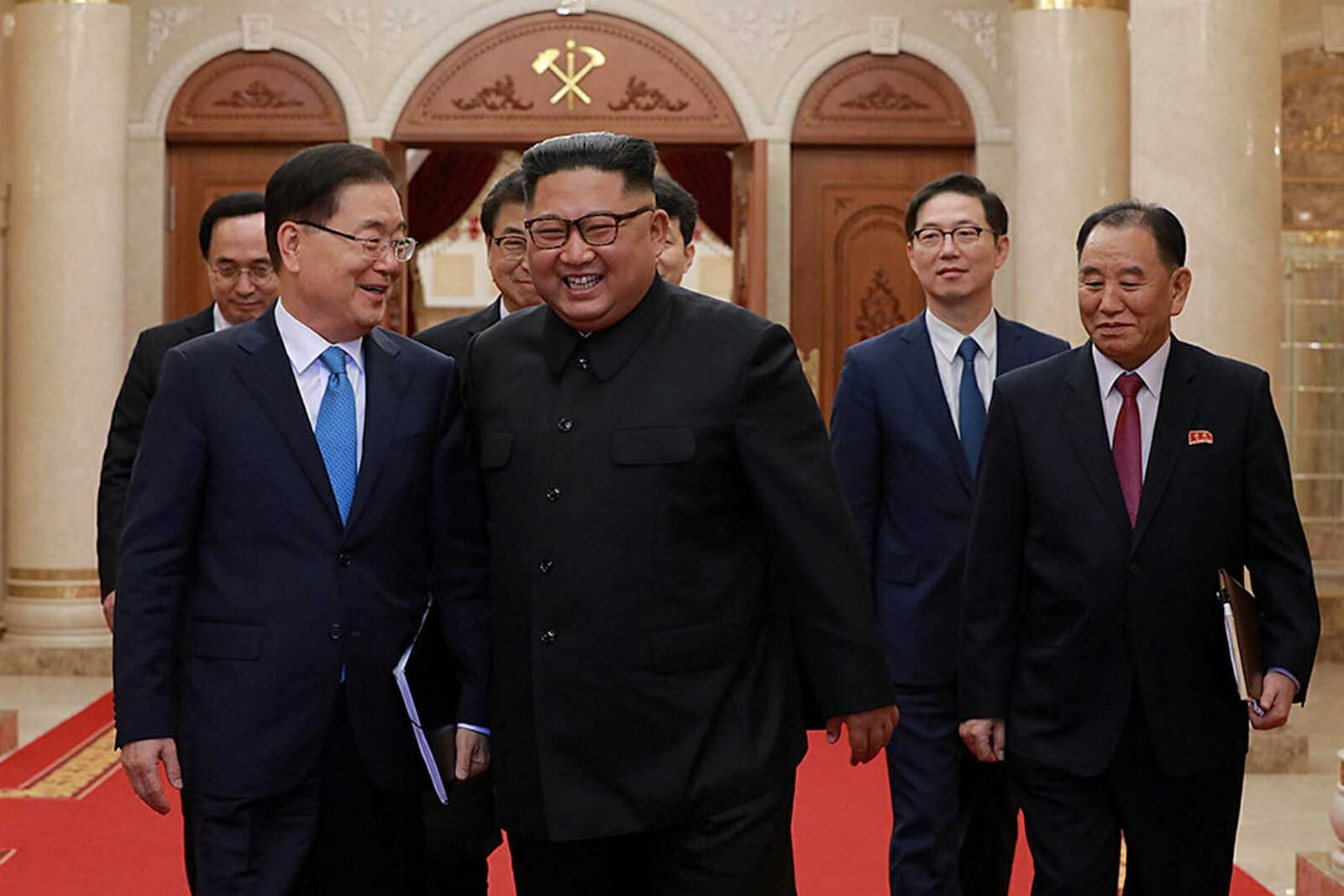
Peace will Triumph over Politics on the Korean Peninsula
More than a year ago, I published an article stating that Kim Jong-un and Donald Trump think a lot alike and suggested that they should take advantage of it in an effort to find common political ground. I stated that there was no need to engage in too much geopolitical strategizing, intelligence analysis, weapons capability calculations, or predictions about the future and that there was nothing to lose by breaking the mould regarding the West’s approach to North Korea.
In April of this year I published another article arguing that if we assume that Kim is coming to the table genuinely intent on radically altering his country’s place among the family of nations, then both he and Trump would need to enter negotiations with the understanding that any bargaining positions either may have had that are seen as “extreme” by the other, and which were crafted to either posture ahead of negotiations or were designed for the benefit of public consumption, were unlikely to result in a solution. Both of them needed to embrace the art of the deal.
In June I predicted that the Korean War will ultimately be formally ended, the Korean Peninsula will be denuclearized, and lasting peace will be the result. I said this in part because both men had staked everything on the commencement of direct dialogue, both could see the finish line potentially within reach for the first time, and both men’s egos would not permit them to fail. They both wanted to go down in history as the two who finally resolved the North Korea imbroglio. Nothing has changed in the months that have followed. If anything, there is greater pressure on both men to see this through.
Those pundits who continue to criticize or cast doubt on the process are basing their views on the Kim family’s history vis-à-vis prior agreements and commitments, but they are not taking into account something very important: none of Mr. Kim’s recent actions have ever occurred before. Never before has a member of the Kim dynasty met with a sitting American president nor has an American president halted joint military exercises with South Korea. Never before has Kim publicly dismantled missile and engine testing facilities, nor have no-fly zones and a maritime peace zone been established, nor has a halt been declared regarding military and artillery drills along the border. And never before has a North Korean leader requested a formal end to the Korean War or planned to visit Seoul.
Some analysts are writing all this off as “baby” steps and question Mr. Kim’s commitment to the denuclearization process. I would ask them, do you imagine that 75 years of hostility and the creation of military fortification on both sides of the border will simply disappear with the single stroke of the pen? It is a process, of course, and both sides clearly continue to have the same vision in mind. Having chosen to go down what many would say is a perilous road – toward embracing South Korea, America, and the world – Kim is under enormous pressure now to make it happen. He has not hesitated to put his best foot forward to introduce and follow through on multiple initiatives designed to build confidence (and seize control of the process). My concern is not that he fails to follow through, but rather that the US fails to keep pace with and follow through on its own initiatives to achieve the same.
The politicization of this process outside of North Korea is another serious concern. There was never any doubt that the subject of peace with North Korea would become a political football in South Korea, the US, Japan, and China. The potential impact of a lasting peace has consequences for all involved vis-à-vis military spending, geopolitical influence, and integration of the two Koreas. Seoul, Pyongyang, Washington, Beijing, and Tokyo must also find a common vision for a post-peace future for the region. If the negotiators have not already put that on the front burner, they had better get started, because all indications are that a peace agreement could be concluded in two short years.
Shared history and a divided peninsula are driving Kim and Moon to put their joint vision for peace into hyperdrive. While much remains unknown about how or exactly when a lasting peace will finally be achieved, it is clear that there is now a better chance of success than ever before. Kim, Moon, Trump, Xi, and Abe are all taking a risk on each other. It is incumbent upon all of them to maintain the momentum and do what must be done to get to the finish line. If they fail to do so, history will never forgive them.

